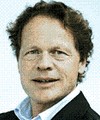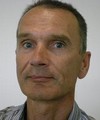June 2017
INDR editorial, June 2017

By Ask Vest Christiansen and John Gleaves
Our 2017 INHR Conference draws rapidly near. On August 24-25, the INDR will return once again to the modern facilities at Aarhus University’s Sport Science building for the 9th biennial conference for the INDR. The theme of the conference is “Doping in sport, doping in society – lessons, themes, and connections” and it promises many high-quality papers and keynotes that highlight new contributions to the field. Abstracts received include many prominent scholars and members of the INDR as well as original research projects from around the world.
Doping and the ideal of natural athletic performance

By Sigmund Loland, Professor, Norwegian School of Sport Science.
Use of performance-enhancing drugs (PED) in sport is controversial and a complex ethical, scientific and practical issue. One challenge is the gap between references to the values of sport, or what in WADA’s terminology is called ‘the spirit of sport’, and operative anti-doping work. General statements on sport values s of little help in line drawing between what are considered acceptable and non-acceptable means and methods. I will propose one way of bridging this gap by outlining a biologically informed ideal of natural athletic performance.
Read the rest of Professor Loland's keynote abstract here.
Sport and the Doping of Everyday Life

By John Hoberman, Professor, University of Texas at Austin, USA
Investigating the relationship between sports doping and the doping of human activities outside the sports world is the ultimate doping problem, because it threatens to dissolve the line that separates a traditionally honored “spirit of sport” from the motivations that drive other human performances, such as productive thinking or musical virtuosity. Demoting “the spirit of sport” from its special status in our ethical pantheon would signal a transformation of this global subculture and thereby subject it to potentially unlimited technological innovations aimed at boosting performance. This development seems plausible given the authority (if not the total hegemony) of the performance principle (Leistungsprinzip) that drives our technological civilization. Whole sectors of modern life are driven by a perpetual and constantly adapting enhancement process that does not allow for self-reflection on the part of the competitors.
Read the rest of Professor Hoberman's keynote abstract here.
Regulating human enhancement: extending anti-doping policy beyond sport?

By Bengt Kayser, Professor, ISSUL, University of Lausanne, Switzerland
Humankind is witnessing a scientific revolution arguably of Kuhnian paradigmatic proportions. Bio-medical and engineering invention rapidly advance and unleash important potential beyond therapeutic use. These developments come with important ethical questions concerning equity, equality, and need. Sports was and is a human activity in which performance enhancement is essential. The Olympic motto is exemplary in this regard: higher, faster, stronger. Athletes adopt behaviour that helps them performing better in their sport by means of training schemes, nutrition, supplements, psychology, and technology. Most pharmacological means and some technologies are not permitted because considered doping.
INDR 2017 Conference – Practical information

Registration
There will be two options for registration; a standard and a reduced for students, including PhD students. Both include access to the full program, coffee, lunch and the conference banquet Friday night. You do not want to miss out on this, so remember to not book your return travels until Saturday 26. In addition, and not mentioned on the registration site, we have decided to serve you a light dinner on Thursday on the conference venue. It is a bargain!
Accommodation
The nearest hotel to the conference venue is Wake Up – virtually just across the street from Peter Gift! It is a brand new budget hotel that opened in June 2017. Prices are 600-1.000 DKK per night (80-130 EUR).
If you like more comfort, the conference hotel is Hotel Scandic Aarhus City, which is situated in the centre of Aarhus, within walking distance of the conference venue. Price per night for single rooms including breakfast, fitness and Wi-Fi is 1425.00 DKK and 1525 for double (approx. 190-200 EUR). Please refer to being an INDR conference delegate and use the Booking Code BAAR240817 when writing directly to the receptionist: aarhuscity@scandichotels.com.
Since Aarhus is the 2017 European Capital of Culture prices on hotels has gone up. Should you therefore prefer a hotel alternative for discounted rooms at cheaper rates we recommend Cabinn Aarhus. This hotel sits next to the river in central Aarhus and offers rooms for 495-675 DKK per night for Standard or Captain rooms (66-90 EUR). It is also within walking distance of the conference venue.
All three hotels are surrounded by a wealth of shopping opportunities, cafes, restaurants and sights, such as the internationally renowned ARoS art Museum and Aarhus’ Old Town Museum.
Transportation
Airport: Copenhagen (CPH)
Connected to most of the world’s larger cities this is the most convenient airport for most delegates. One can either fly from here to Aarhus (1 hour) or travel directly from the airport to Aarhus city centre by train (3 hours):
- Train ticket (one way): approximately 390 DKK (52 EUR)
Airport: Billund Airport (BLL)
Many routes connected with the UK and Europe mainland. There is a shuttle service from airport to Aarhus city centre (1.5 hours):
- Shuttle service, fee (one way): approximately 160 DKK (22 EUR)
Airport: Aarhus (AAR)
A smaller airport, 45 minutes from Aarhus city centre. The airport has a number of daily connections with CPH. There is a shuttle service from the airport to Aarhus city centre:
- Shuttle service, fee: approximately 115 DKK (15 EUR)
Aarhus Taxi Company
Airport transfer from (AAR), contact in advance salg@aarhus-taxa.dk or by phone: +45 89 48 48 89
City taxi service: +45 89 48 48 48